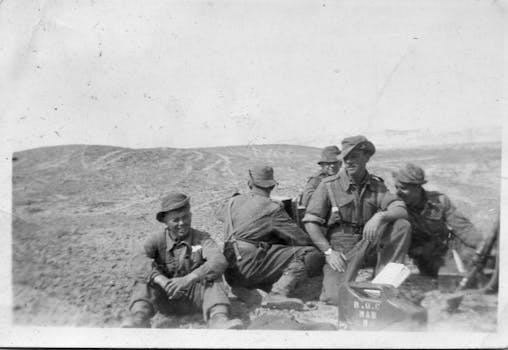
Sun Protection vs. Vitamin D: A Vital Health Balance for Black Soldiers
Balancing Act: Sun Protection and Vitamin D Absorption for Black Soldiers
Balancing Act: Sun Protection and Vitamin D Absorption for Black Soldiers
Introduction
The sun, while being a source of life, warmth, and vitamin D, also poses a health risk, particularly for those who spend a significant amount of time outdoors. This dichotomy is particularly relevant for Black soldiers who are often exposed to the sun's harsh rays while on duty. This article explores the delicate balance between sun protection and vitamin D absorption, a critical health concern for Black soldiers due to their unique skin properties.
The Role of Melanin in Black Skin
Black skin has a higher melanin content, which gives it a natural sun protection factor (SPF). This pigment provides some protection against harmful UV rays. However, it also lowers the skin's efficiency in producing vitamin D, making Black soldiers more susceptible to vitamin D deficiency. This deficiency can lead to numerous health problems, including weakened bones, fatigue, and a compromised immune system.
Understanding Ultraviolet Rays and Vitamin D Production
The sun emits two types of ultraviolet (UV) rays: UVA and UVB. UVA rays penetrate deep into the skin, causing premature aging and contributing to skin cancer. Conversely, UVB rays are responsible for sunburn and play a significant role in skin cancer development. These rays also stimulate the production of vitamin D in the skin.
Melanin, the pigment that gives our skin, hair, and eyes their color, absorbs UVB rays, reducing their ability to produce vitamin D. This means that the darker the skin, the more sun exposure is needed to produce sufficient vitamin D. This is the crux of the issue for Black soldiers.
The Dangers of Vitamin D Deficiency
On the battlefield, soldiers are exposed to the sun for prolonged periods. Their melanin-rich skin provides some protection against UV rays' harmful effects, but it also hampers vitamin D production. This can lead to vitamin D deficiency, which is a serious health concern. Vitamin D plays a crucial role in maintaining healthy bones and teeth, supporting the immune system, regulating insulin levels, and supporting cardiovascular health and lung function.
Striking a Balance: Solutions
So, how can Black soldiers strike a balance between sun protection and vitamin D absorption?
Diet and Supplementation
Diet and supplementation play a significant role. Foods such as fatty fish, cheese, egg yolks, and vitamin D fortified foods like milk and cereal can help. Vitamin D supplements are also a reliable way to ensure sufficient intake, especially during the winter months when sun exposure is limited.
Sensible Sun Exposure
Sensible sun exposure can also contribute to maintaining healthy vitamin D levels. This means spending short periods in the sun without sunscreen, preferably during the early morning or late afternoon when the sun's rays are less intense. However, prolonged sun exposure without protection is not recommended, as this increases the risk of skin cancer.
Regular Skin Checks
Finally, regular skin checks are crucial. Early detection is key in managing skin cancer, so regular self-examinations and annual dermatologist visits should be part of every soldier's healthcare regimen.
Conclusion
The sun protection vs. vitamin D debate is a complex one for Black soldiers. The protective benefits of melanin are a double-edged sword, offering some defense against harmful UV rays while also inhibiting vitamin D production. Striking the right balance requires a multi-faceted approach, encompassing a balanced diet, sensible sun exposure, supplementation, and regular skin checks.
As we salute our Black soldiers for their bravery and service, let's also acknowledge the unique health challenges they face. By equipping them with the knowledge and resources to manage these challenges, we can ensure they remain fighting fit, both on and off the battlefield.
